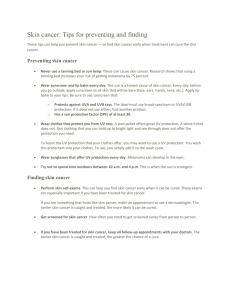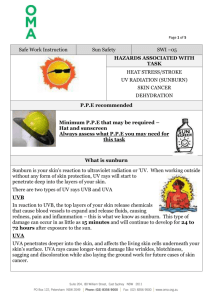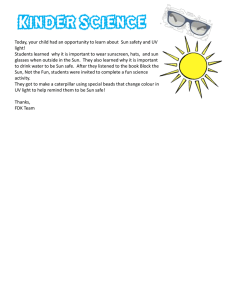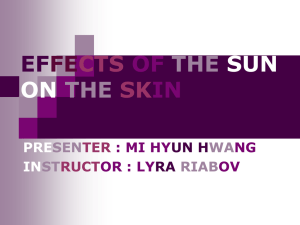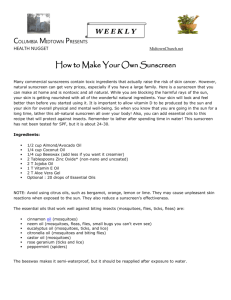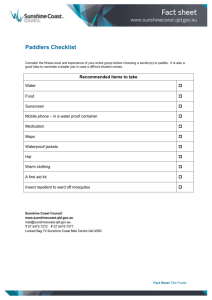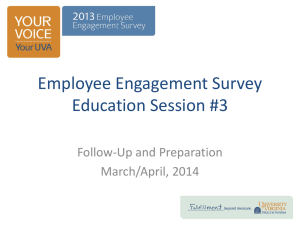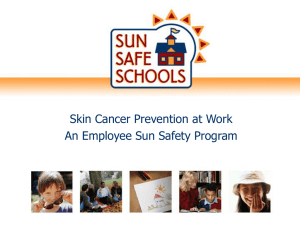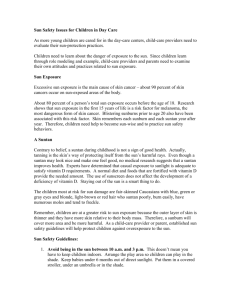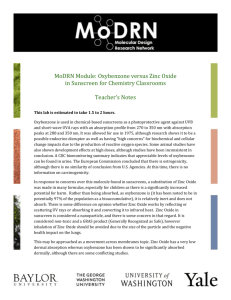UV Radiation Designed Experiment Lab
advertisement
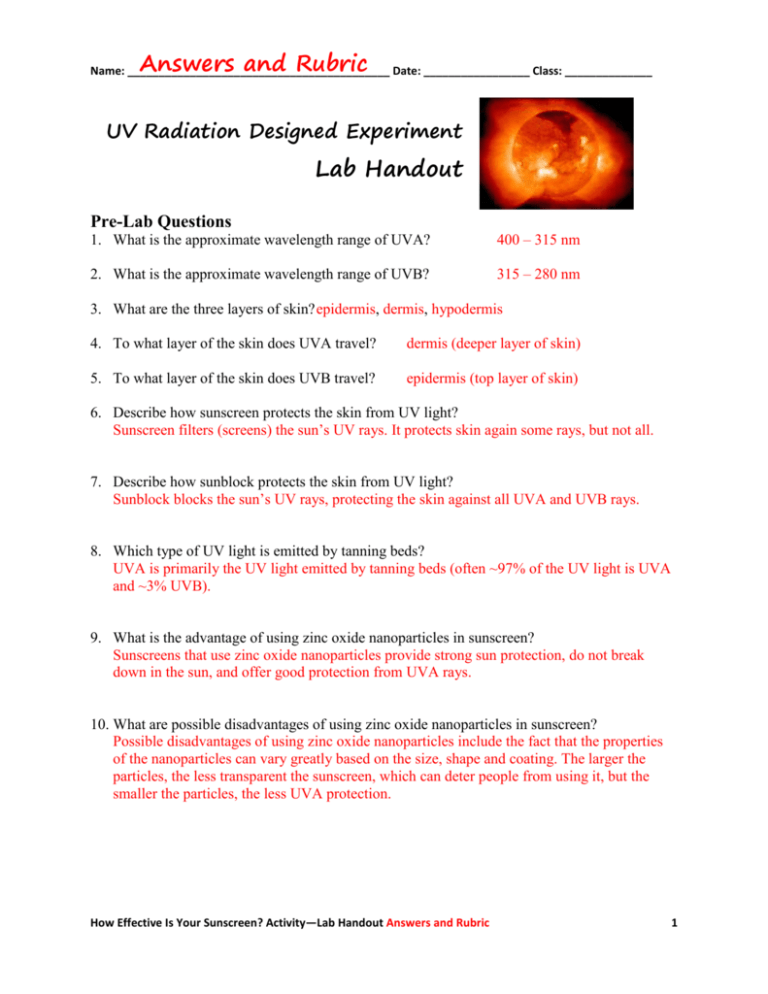
Answers and Rubric Name: __________________________________________ Date: _________________ Class: ______________ UV Radiation Designed Experiment Lab Handout Pre-Lab Questions 1. What is the approximate wavelength range of UVA? 400 – 315 nm 2. What is the approximate wavelength range of UVB? 315 – 280 nm 3. What are the three layers of skin? epidermis, dermis, hypodermis 4. To what layer of the skin does UVA travel? dermis (deeper layer of skin) 5. To what layer of the skin does UVB travel? epidermis (top layer of skin) 6. Describe how sunscreen protects the skin from UV light? Sunscreen filters (screens) the sun’s UV rays. It protects skin again some rays, but not all. 7. Describe how sunblock protects the skin from UV light? Sunblock blocks the sun’s UV rays, protecting the skin against all UVA and UVB rays. 8. Which type of UV light is emitted by tanning beds? UVA is primarily the UV light emitted by tanning beds (often ~97% of the UV light is UVA and ~3% UVB). 9. What is the advantage of using zinc oxide nanoparticles in sunscreen? Sunscreens that use zinc oxide nanoparticles provide strong sun protection, do not break down in the sun, and offer good protection from UVA rays. 10. What are possible disadvantages of using zinc oxide nanoparticles in sunscreen? Possible disadvantages of using zinc oxide nanoparticles include the fact that the properties of the nanoparticles can vary greatly based on the size, shape and coating. The larger the particles, the less transparent the sunscreen, which can deter people from using it, but the smaller the particles, the less UVA protection. How Effective Is Your Sunscreen? Activity—Lab Handout Answers and Rubric 1 Name: __________________________________________ Date: _________________ Class: ______________ Lab Report Expect students’ experimental designs and results to vary since teams design their own experiments. Make sure students created controlled tests that tested one variable at a time. UV sensitive beads change to random colors when exposed to UV light of either UVA or UVB wavelength. Sunscreen will not adhere directly to the bead surface, so students must come up with ways to contain the beads in something transparent that will have minimal UV absorption and then apply the sunscreen to that material. Lab Title _____________________________________________________________________ Purpose ______________________________________________________________________ Materials __________________________________ _________________________________ Objective: To design a controlled experiment to quality test some aspect of a current UV safety product. Choose from the following materials in designing your experiment and if your team brainstorms additional materials that would aid in your design, present a list of those materials to your teacher for approval. Provided materials: sunscreen SPF 15 sunscreen SPF 45 sunblock sunscreen containing zinc oxide nanoparticles sunglasses UV sensitive beads that change color upon UV exposure UV intensity cards plastic bags plastic wrap UV lamps Vernier UVA and UVB light sensors Results must be reported in a typed lab report that is due and will be presented tomorrow. The lab report must contain sections for the title, purpose, procedure (this was designed by you), data and analysis, and conclusion (which must tie back to your purpose). *Remember this must be a one-variable, controlled experiment, with the one variable chosen by your lab group. Have fun! Lab Report Grading Rubric Lab Report Sections Title Purpose Materials Procedure Data/Analysis Maximum Point Value per Section 5 15 5 25 20 Conclusion 20 Presentation 10 100 Objectives for Each Section Title clearly labeled. Purpose is concise and testable. Complete list of all materials used. All experimental design aspects are present. All data are clearly labeled and present; graphs. Conclusion ties back to prove or disprove hypothesis and backed by experiment. Articulate, and well explained to the class. Maximum total points How Effective Is Your Sunscreen? Activity—Lab Handout Answers and Rubric 2
